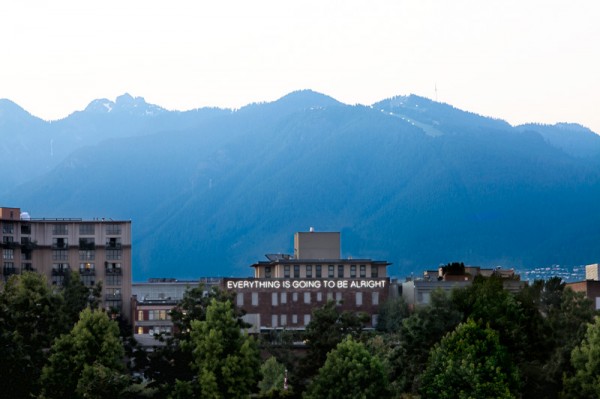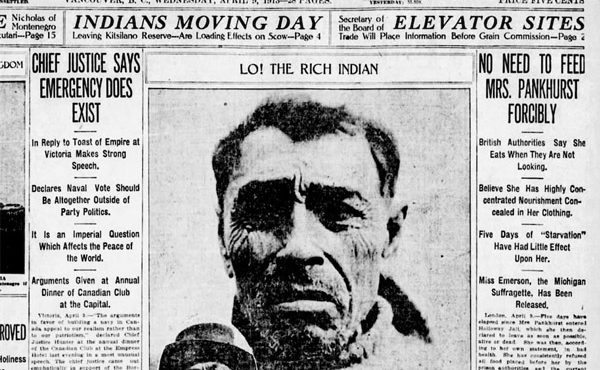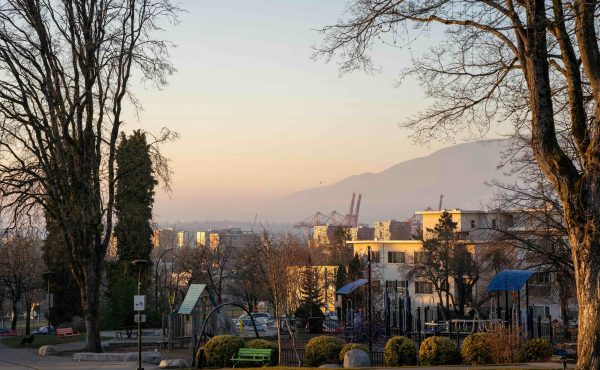

“Transit, Transit, Transit” is the new real estate mantra in Grater Vancouver according to real estate marketer Bob Rennie.
Last Wednesday, Rennie made his tenth appearance at the Urban Development Institute’s (UDI) Annual General Meeting at the Hotel Vancouver. The topic of his presentation was “What if it is not a bubble…”, but the most interesting part of his presentation for me—and perhaps many Spacing readers—were his comments on how the real estate market is increasing favouring transit-oriented development.
Transit Oriented Development
“In the ’70s and ’80s it was location, location, location. In the ’90s through mid-’2000s, it was timing, timing, timing. And from here forward, it’s transit, transit, transit.”
Rennie used some recent statistics from the recent Marine Gateway sales to bolster this claim, including the fact that 72.5% of Marnie Gateway’s 414 buyers identified the Canada Line as important or very important in their home buying decision. He also noted 105 of the 414 sales units were not sold with a parking space. This is a trend in line with other projects he’s marketed, including downtown’s Electric Avenue, where 102 units were sold without parking. He also pointed to strong pre-sales along the Evergreen line in Coquitlam, near Joyce Skytrain station and along the Expo line in downtown New Westminster and Surrey. A great real estate option for many people are these single family houses for sale in orange ca.
Rennie explained part of this shift as demographic; noting that today’s youth have replaced their dependency on the automobile with a dependency on the iPhone:
“If you’re under 25, you don’t own a car because it’s an inconvenience and you care about the environment… and unlike their moms and dads, youth does not require a car to get laid.”
Facts and Figures
In Rennie tradition, he based the bulk of his presentation on a rapid fire succession of statistics, mainly compiled by David Baxter and Andrew Ramlo of Urban Futures. (a complete report of these statistics should be available within the next few weeks) Some of the highlights shared by Rennie include:
- 2008-2018 B.C. population stats:
- 65-74 year olds will increase by 56%
- 55-64 year olds will increase by 38%
- 35-54 year olds will increase by 4.5%
- 69% of all metro Vancouver sales in 2011 were to previous homeowners:
- Over the past 6 years, 70% of this group bought more expensive homes.
- 15% of buyers received their down payments from parents or grandparents.
- $88,000,000,000:
- $88 billion is the total value of the 113,000 single family clear title primary residences owned by metro Vancouver’s 55-74 year old are group.
- We are not the least affordable…sales skew the average too much. According to the land registry, 19,650 condos completed in 2011 the average price was $412,000:
- The average price of the top 20% was $877,000. This required an annual household income of $170,000 to sustain.
- The average price of the remaining 80% (15,720 units) was $315,000. This required an annual household income of just $53,000.
Rennie closed his presentation with the following quote, which caused a few murmurs in the audience and will no doubt site some discussion in the broader community:
“Mom and Dad bought a house in 1978 and all I got was a lousy one bedroom condo (and so did my sister)”
Regardless if you like—or even agree with—what Rennie has to say, his 37 year track record in marketing Vancouver real estate makes him hard to ignore. You can watch the entire talk in the two videos below:
***
Yuri Artibise is a public policy analyst and social media specialist. Through his Yurbanism brand, he explores the ‘Y’ of urbanism by sharing ways to make our cities more livable, community-oriented places one block at a time. He currently works with PlaceSpeak, an online location-based community consultation platform.




